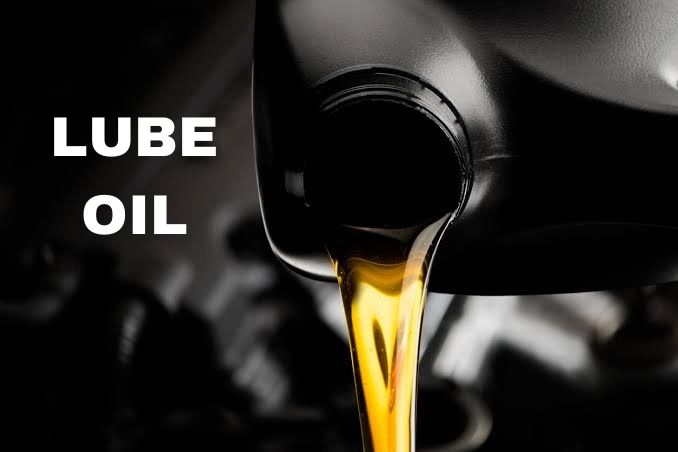When you think about lube oil, your mind might immediately jump to its primary function: lubricating the engine of a vehicle. However, this versatile substance has a wide array of uses that extend beyond automotive applications. In this guide to lube oil, we will delve into its varied applications, shedding light on why it is a vital substance in multiple industries and everyday life.
What is Lube Oil?
Lube oil, short for lubricating oil, is a substance used to reduce friction between surfaces that are in contact. It serves multiple purposes, including cooling components, cleaning away dirt and contaminants, sealing gaps, and preventing corrosion. Typically derived from refining crude oil, today’s lubes can also include synthetic and bio-based alternatives, offering a range of benefits depending on the formulation.
The Uses of Lube Oil beyond the Engine
- Industrial Machinery
In industrial settings, lube oil is critical for ensuring that machinery operates smoothly and efficiently. Heavy machinery, conveyor belts, and gears all require lubrication to minimize wear and tear. Regular application of high-quality lube oil can extend the life of equipment, decrease maintenance costs, and improve operational efficiency.
- Marine Applications
The marine industry relies heavily on lube oil for the smooth functioning of engines onboard ships and boats. However, its use doesn’t stop there. Lube oils are also utilized in hydraulic systems, turbines, and other moving parts exposed to saltwater, which can lead to accelerated corrosion. Marine lube oils are specially formulated to withstand harsh environments, offering protection against rust and ensuring optimal performance.
- Construction Equipment
Construction sites are bustling hubs of activity, where heavy-duty machinery such as excavators, bulldozers, and cranes are continually at work. These machines require robust lubrication solutions to prevent operational failures. Lube oil is essential for hydraulic systems, transmissions, and engine components. Proper lubrication increases efficiency and reduces the likelihood of downtime, which can be costly in construction scenarios.
- Food Industry
Interestingly, lube oil finds its way even into the food processing industry. Food-grade lubricants, often made from food-safe ingredients, are essential for machinery that comes into contact with food items. This includes everything from conveyor belts to mixers. It is crucial to use the right type of lube oil here, as contamination could lead to serious health issues. Hence, special care is required, and using certified food-grade lubricants ensures compliance with safety standards.
- Household Uses
Many homeowners may not realize that lube oil can be quite handy around the house. Here are some examples:
– Squeaky Hinges: A drop of lube oil can work wonders on squeaky doors or window hinges, providing a simple fix to a common household annoyance.
– Bicycle Maintenance: Regularly lubricating various bike components, like chains, gears, and brakes, ensures smooth riding and prolongs the life of bicycles.
– Power Tools: Lube oil is also useful for maintaining power tools, preventing rust and ensuring their components move freely.
- Textile Machinery
The textile industry is another area where lube oil plays an integral role. From spinning to weaving, lubricants are essential for the smooth operation of machines. They help to minimize friction between moving parts, reduce energy consumption, and prevent wear on costly machinery.
- Electronics and Data Centers
In the tech world, lube oil is often used in the cooling processes of various electronic components. Data centers depend on lubrication for their cooling systems to manage heat generated by server hardware. Proper lubrication helps in maintaining optimal temperatures, which is critical for performance and longevity.
Choosing the Right Lube Oil
With so many applications for lube oil, choosing the right type can be daunting. Here are some factors to consider:
- Viscosity
Viscosity, or how thick the oil is, influences how well it will perform. Lighter oils are better for colder environments, while thicker oils may be necessary for applications that require heavy load-bearing.
- Additives
Many modern lube oils come with a range of additives designed to improve performance, including antioxidants, anti-wear additives, and detergents. The right combination can provide enhanced protection, longer service life, and improved efficiency.
- Temperature Range
Different applications will operate within varying temperature ranges. Ensuring that the lube oil chosen can withstand the specific temperatures of your machinery is essential to maintain optimal performance and prevent breakdowns.
- Compatibility
Finally, consider the compatibility with the materials and metals used in the machinery or vehicles being serviced. Using the wrong type of oil can lead to degradation of components and may void warranties.
Conclusion
Lube oil is not just for engines; it is a multifaceted substance integral to numerous industries and everyday applications. From industrial machinery to household fixes, understanding its various uses can lead to smarter maintenance and greater efficiency. This guide to lube oil reveals the breadth and depth of its capabilities, illustrating its importance in modern life.
Experience premium engine care—visit any 11PLC filling station nationwide today for the best Mobil Lubricants. Your vehicle deserves nothing less! With the right lube oil, you can ensure not just the longevity of your vehicle, but also enjoy smoother operation in various aspects of your life. Make the informed choice in lube oil today!

